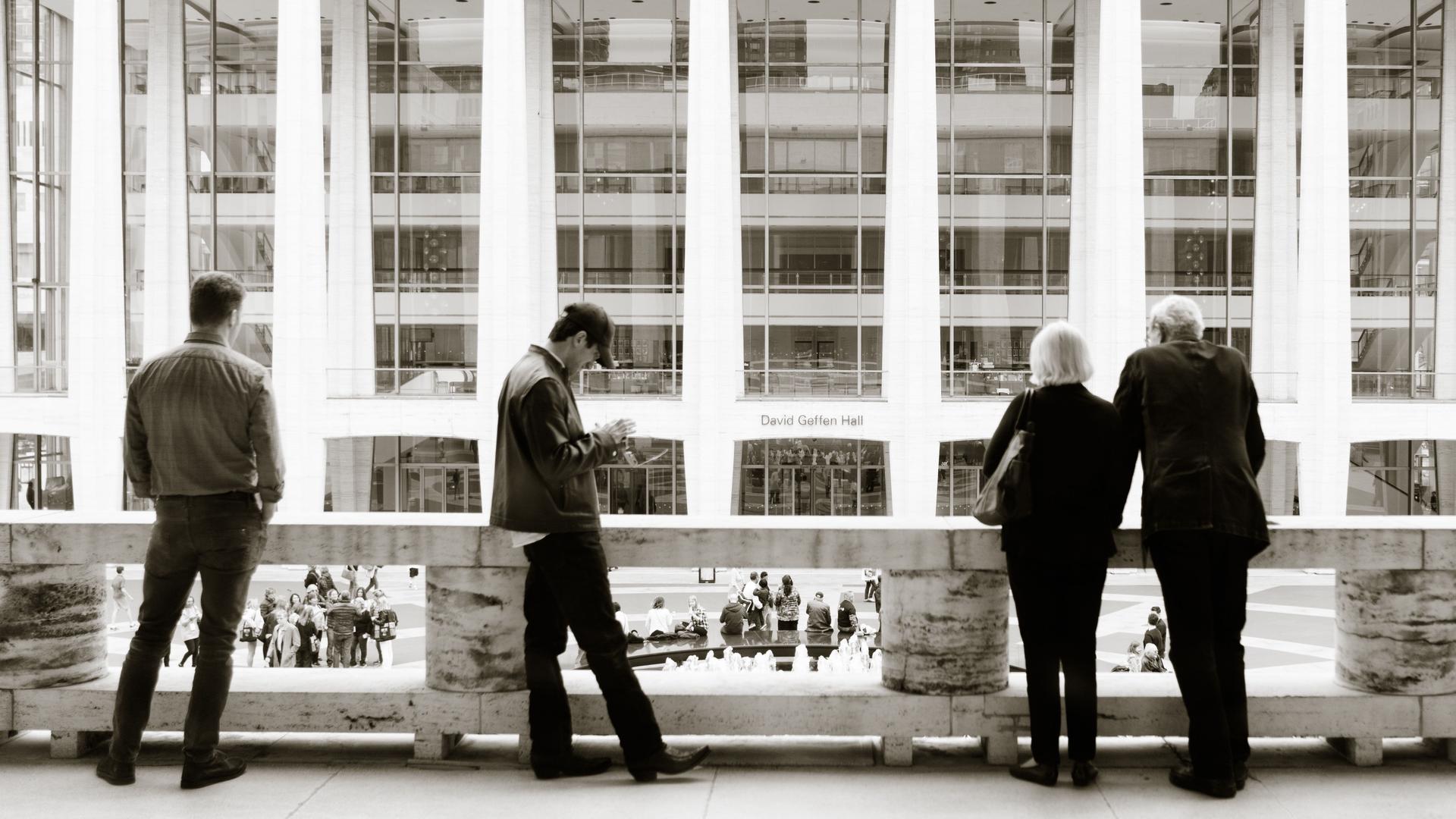The Koch brothers open their wallets for the arts. But should arts groups take Koch money?
This is a view from inside the David H. Koch Theater.
Arts and cultural organizations desperately need funding, but should they draw a line at who they accept it from?
Philip Kennicott, The Washington Post art and architecture critic, wrestled with that question in a recent article. He was thinking of the billionaire brothers David and Charles Koch, who have donated vast sums to organizations like the Metropolitan Museum of Art and the New York City Opera and many others. Through their company, Koch Industries (which includes major fossil fuel interests) and other groups, the brothers have also funded experts and think tanks that undermine the scientific consensus that global warming is real and human-caused.
Kennicott’s title belies his conclusion: “With the planet in peril, arts groups can no longer afford the Koch brothers’ money.” Kennicott explains why the Koch brothers’ philanthropy should give arts organizations pause — at least in theory.
“My argument in this piece is that there is something about what the Koch brothers have managed to do, and the impact that has already had on our political, our moral and our intellectual life, that is actually going to make things very difficult for arts organizations in particular,” he says.
In his article, Kennicott cycles through several compelling specifics: At one point, he argues that the Kochs’ campaign against climate science is an affront to our empathy and critical thinking, which the arts support. Elsewhere, he writes that if our planet becomes uninhabitable, there will simply be no one left to enjoy art — or interpret the art we’ve left behind.
Kennicott admits that in practice, it’s not realistic to expect cultural and arts organizations to vet every donated dollar for “ideological purity.” “I think that puts them in a very unfair position,” he says. “And I think it also further politicizes the arts in the way that we don't want to see happen.”
But hypothetically, at least, he invites us to consider the significance of an arts organization turning down a $100 million gift, as a matter of principle.
“I don't think it's ridiculous to say that that might cause some serious reflective thinking to the person who was trying to give that money,” he says. “Why was it refused? What have I done that has become anathema in the public square?”
Kennicott doesn’t anticipate that his argument will convince any organization offered $100 million not to take it. “In a way, I will admit that my expectation of succeeding on that rhetorical level was fairly low,” he says. “What I want to do, however, is to underscore the simple idea that anxiety about the climate is not an issue that is miles and miles and miles away from what happens inside museums and opera houses,” he says.
The environment and the arts are connected at a deep level, he says. “It goes really to the heart of the aesthetic experience to want to believe that we are going to have a livable planet and subsequent generations to participate in these things.”
David Koch supports the science series NOVA, produced by WGBH and is a former board member of WGBH. PRI is an affiliated company of WGBH.
This article is based on an interview that aired on PRI's Studio 360 with Kurt Andersen.
The article you just read is free because dedicated readers and listeners like you chose to support our nonprofit newsroom. Our team works tirelessly to ensure you hear the latest in international, human-centered reporting every weekday. But our work would not be possible without you. We need your help.
Make a gift today to help us reach our $25,000 goal and keep The World going strong. Every gift will get us one step closer.
